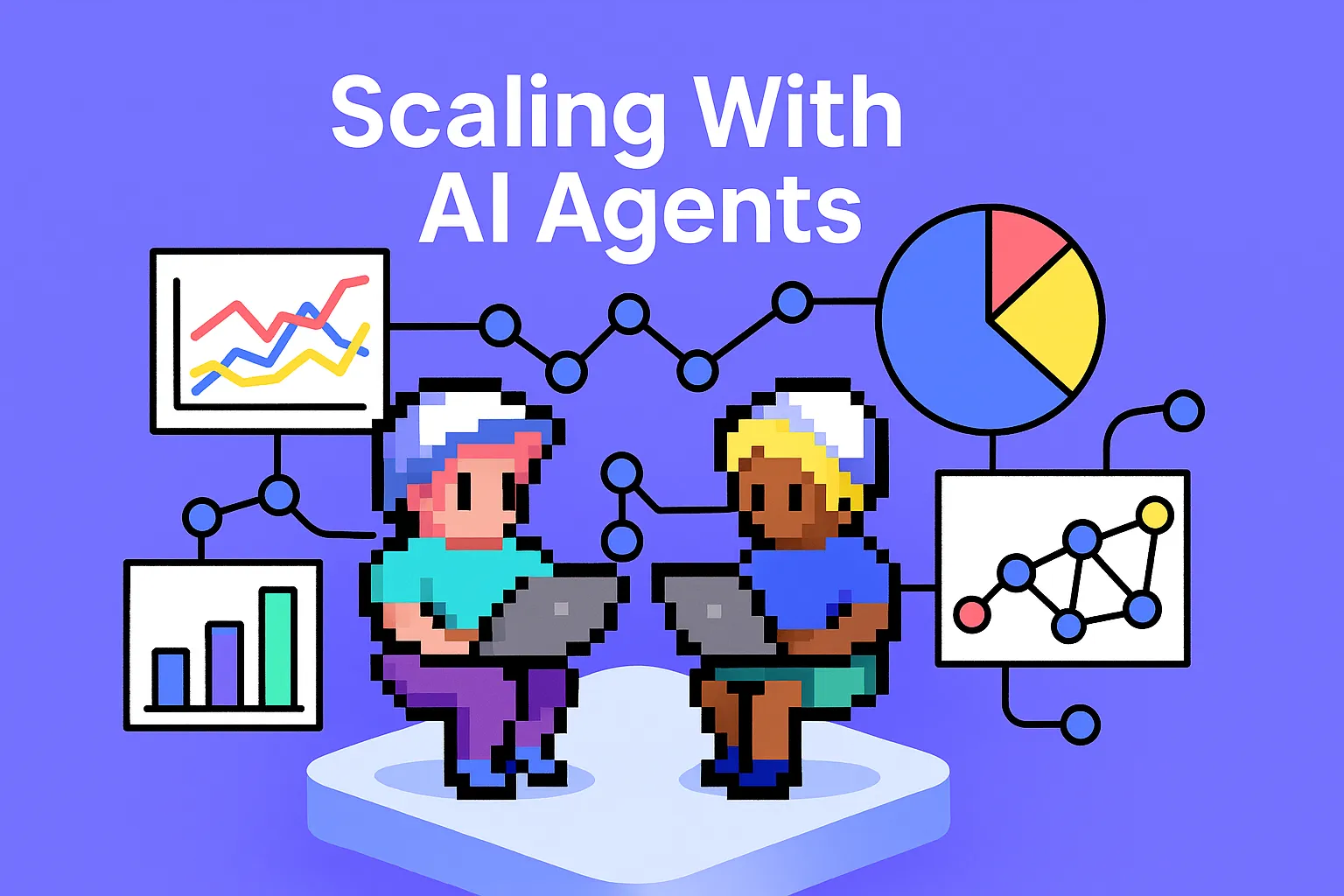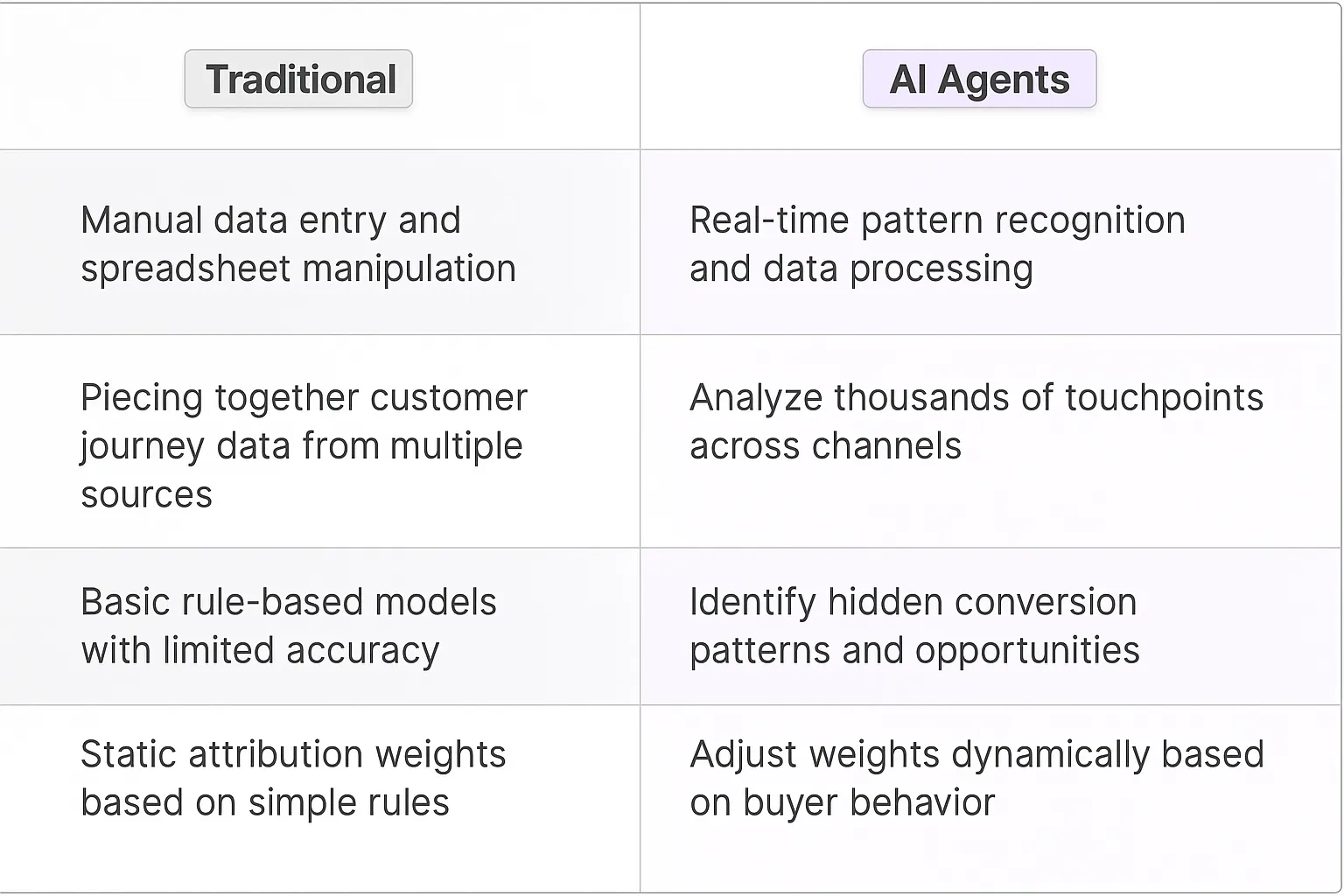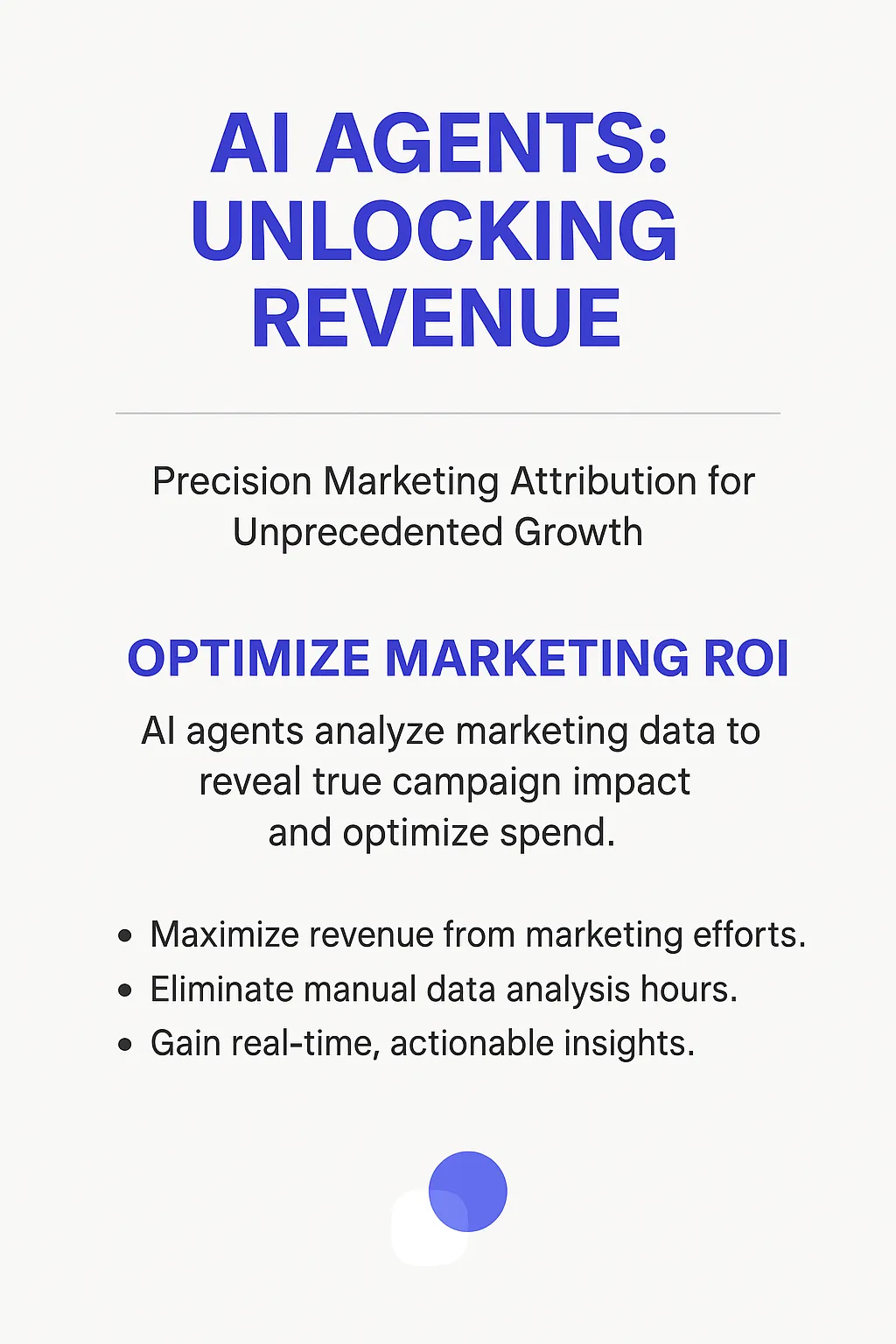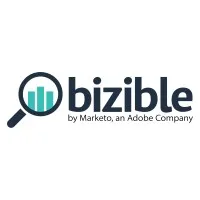Bizible
Understanding Bizible's Marketing Attribution Platform
What is Bizible?
Bizible is a B2B marketing attribution platform that connects marketing efforts to revenue outcomes. The software tracks and measures every marketing touchpoint in the customer journey, from first interaction to closed deal. By integrating with CRM and marketing automation systems, Bizible provides a comprehensive view of marketing's impact on pipeline and revenue.
Key Features of Bizible
The platform's core capabilities include multi-touch attribution modeling, revenue pipeline analytics, and cross-channel tracking. It offers advanced reporting features that connect marketing activities to revenue outcomes, custom attribution models that adapt to unique business needs, and integration with major marketing and sales platforms. When enhanced with AI Agents, these features become even more powerful through automated pattern recognition and predictive analytics.
When integrated with platforms like Salesforce and Adobe Analytics, Bizible creates a unified view of the customer journey that spans multiple touchpoints and channels.

Benefits of AI Agents for Bizible
What would have been used before AI Agents?
Marketing attribution tracking traditionally required manual data entry, spreadsheet manipulation, and constant reconciliation between different analytics platforms. Marketing teams spent countless hours piecing together customer journey data from CRM entries, ad platforms, and website analytics. They relied on basic rule-based attribution models that failed to capture the nuanced reality of modern B2B buying cycles.
What are the benefits of AI Agents?
AI Agents transform Bizible's attribution capabilities through sophisticated pattern recognition and real-time data processing. These digital teammates continuously analyze thousands of touchpoints across marketing channels, identifying previously hidden conversion patterns and revenue opportunities.
The agents excel at connecting disparate data points that humans might miss - like correlating specific content engagement patterns with closed-won deals. They automatically adjust attribution weights based on observed buyer behavior, creating a dynamic model that evolves with your market.
For revenue teams, this means moving beyond basic first-touch/last-touch attribution to understand the true impact of every marketing investment. The agents surface actionable insights like:
- Which content combinations drive the highest quality MQLs
- The optimal timing between different types of marketing touches
- Channel interactions that consistently influence enterprise deals
- Early indicators of accounts likely to convert
Most importantly, these insights arrive in real-time, allowing marketers to optimize campaigns while they're still running rather than waiting for quarterly review cycles. The agents handle the heavy lifting of data processing and pattern matching, freeing marketers to focus on strategic decisions and creative execution.
The network effect is particularly powerful - as more companies use AI Agents with Bizible, the models become increasingly sophisticated at identifying successful attribution patterns across different industries and business models.

Potential Use Cases of AI Agents with Bizible
Marketing Attribution Analysis
AI agents can parse through complex multi-touch attribution data in Bizible, identifying the most effective marketing channels and touchpoints. They analyze conversion paths, revenue impact, and ROI metrics to surface actionable insights that marketing teams often miss when manually reviewing data.
Campaign Performance Optimization
Digital teammates monitor campaign performance metrics in real-time, detecting anomalies and opportunities across different marketing channels. When performance dips below expected thresholds, they can alert teams and suggest specific adjustments based on historical data patterns.
Revenue Pipeline Analysis
AI agents excel at connecting marketing activities to revenue outcomes in Bizible. They track pipeline velocity, analyze deal progression, and identify which marketing investments drive the highest quality opportunities - giving teams granular visibility into their revenue engine.
Lead Source Attribution
By continuously analyzing lead source data, AI agents can uncover hidden patterns in how different channels contribute to pipeline generation. They track both first-touch and multi-touch attribution models, providing teams with clear insights into which sources deserve more investment.
ROI Forecasting
AI agents process historical attribution data to build predictive models for marketing ROI. They can project expected returns from different channel investments and alert teams when actual performance deviates from forecasts.
Custom Report Generation
Rather than manually building reports, teams can ask AI agents to generate custom attribution analyses. The agents pull relevant data, create visualizations, and surface key insights - all through natural language requests.
Data Quality Management
AI agents continuously monitor Bizible data quality, flagging inconsistencies, missing information, and potential tracking issues. This ensures teams make decisions based on clean, reliable attribution data.
Key Tasks
- Analyze multi-touch attribution models and surface key insights
- Monitor campaign performance metrics and detect anomalies
- Generate custom attribution reports and visualizations
- Track pipeline velocity and progression
- Forecast marketing ROI across channels
- Validate data quality and completeness
- Identify top-performing marketing channels
- Calculate revenue impact of marketing activities
Through these capabilities, AI agents transform how marketing teams leverage Bizible's attribution data - moving from manual analysis to automated, intelligent insights that drive better decision-making and marketing ROI.

Industry Use Cases
AI agents are transforming how marketing teams leverage Bizible's attribution capabilities across multiple sectors. The intersection of AI and marketing attribution creates powerful new ways to decode customer journeys and optimize campaign performance. Marketing teams deploy these digital teammates to extract deeper insights from Bizible data, identify hidden patterns in attribution models, and make real-time adjustments to maximize ROI.
The applications span from SaaS companies tracking complex B2B sales cycles to ecommerce brands mapping multi-touch consumer paths. Rather than just collecting attribution data, AI agents actively analyze touchpoints, suggest optimization opportunities, and help teams understand which channels truly drive conversions. They're particularly valuable for organizations dealing with long sales cycles and multiple stakeholders where traditional attribution becomes challenging to track manually.
By examining specific use cases across industries, we can better understand how AI agents enhance Bizible's core capabilities while solving unique vertical-specific challenges. The following examples demonstrate how different sectors leverage this powerful combination of attribution modeling and artificial intelligence.
Technology Industry: Scaling Marketing Attribution with Bizible AI
Software companies face a unique challenge in marketing attribution - their customers interact across dozens of touchpoints before making a purchase decision. A typical B2B software buyer might read blog posts, download whitepapers, attend webinars, and engage with sales teams over a 6-12 month period. Traditional attribution models break down trying to analyze these complex, non-linear journeys.
A Bizible AI agent transforms how software companies understand their marketing performance by processing massive amounts of cross-channel data in real-time. When integrated with platforms like Salesforce and Adobe Analytics, the agent automatically identifies patterns in successful customer journeys that human analysts might miss.
For example, when a mid-market SaaS company deployed a Bizible AI agent to analyze their attribution data, it uncovered that technical blog posts read 3-4 months before purchase had 2.5x more influence on closing deals than previously credited. This insight led them to shift budget from late-stage webinars to early-stage technical content, resulting in a 40% increase in pipeline velocity.
The agent also excels at granular content performance analysis - determining not just which assets drive conversions, but specifically which messages, topics and formats resonate with different buyer personas at each funnel stage. This enables software companies to optimize their entire content strategy with unprecedented precision.
Beyond reporting, the Bizible AI agent provides actionable recommendations, suggesting optimal channel mix adjustments and identifying high-potential accounts showing buying signals across channels. This helps marketing teams stay ahead of opportunities rather than just measuring past performance.
For technology companies dealing with complex B2B buying cycles, this level of intelligent attribution creates a significant competitive advantage in both marketing efficiency and revenue growth.
Financial Services: Unlocking Multi-Channel Attribution Intelligence with Bizible AI
Financial services firms operate in an environment where attribution complexity compounds exponentially. A single high-value client acquisition often involves 50+ touchpoints across digital and offline channels over 12-18 months. Traditional attribution models collapse under this weight, leading to misallocated marketing spend and missed opportunities.
The Bizible AI agent cuts through this complexity by processing millions of interaction data points to surface the real drivers of client acquisition. When a leading wealth management firm implemented the agent, it discovered that their assumption about webinars driving most conversions was incorrect. The data revealed that long-form educational content consumed via mobile devices during commute hours had 3x more impact on closing high-net-worth clients.
What makes this particularly powerful is the agent's ability to connect seemingly unrelated signals. For example, it identified that prospects who engaged with retirement planning calculators and then read market analysis reports within a 60-day window were 4x more likely to convert into clients. This pattern recognition operates at a scale impossible for human analysts.
The agent also excels at regulatory compliance by maintaining detailed audit trails of every marketing touchpoint. For financial services firms, this automated documentation of attribution logic provides peace of mind during compliance reviews while delivering actionable insights.
Most significantly, the agent adapts its attribution models based on market conditions. During periods of high market volatility, it automatically adjusts to weight risk-related content engagement differently than during stable periods. This dynamic approach helps financial services marketers stay responsive to changing client needs.
The ROI impact speaks volumes - firms using Bizible AI for attribution typically see a 30-45% reduction in customer acquisition costs while improving conversion rates on their highest-value services. For financial services marketers, this combination of precision, compliance, and adaptability transforms attribution from a reporting exercise into a strategic advantage.
Considerations and Challenges
Implementing Bizible AI agents requires careful planning and strategic consideration across multiple dimensions. The complexity stems from both technical infrastructure requirements and organizational readiness factors that need alignment before deployment.
Technical Challenges
Data quality serves as the foundation for Bizible AI agent performance. Organizations often struggle with fragmented customer data across CRM systems, marketing automation platforms, and analytics tools. The AI agent needs clean, normalized data to accurately attribute marketing touchpoints and generate reliable insights.
Integration complexity presents another hurdle. Bizible AI agents must seamlessly connect with existing martech stacks while maintaining data integrity and real-time synchronization. This often requires custom API development and careful management of data flows between systems.
Operational Challenges
Marketing teams need significant process adjustments when adopting Bizible AI agents. The shift from traditional attribution models to AI-driven insights demands new workflows and decision-making frameworks. Teams must develop competencies in interpreting AI recommendations and translating them into actionable marketing strategies.
Change management becomes critical during implementation. Marketing leaders need to address potential resistance from teams accustomed to legacy attribution methods. Clear communication about the AI agent's role, capabilities, and limitations helps set realistic expectations and drive adoption.
Resource Requirements
Successful implementation demands dedicated resources beyond the initial setup. Organizations need to allocate budget for ongoing maintenance, updates, and potential customizations. Additionally, teams require training to effectively leverage the AI agent's capabilities and interpret its insights for strategic decision-making.
The technical infrastructure must scale with growing data volumes and increasing complexity of marketing campaigns. This includes considerations for storage, processing power, and bandwidth to maintain optimal performance as the organization expands its marketing operations.
The Future of Marketing Attribution: AI Agents and Bizible
The marriage of AI Agents and Bizible marks a significant shift in marketing attribution technology. Organizations leveraging these digital teammates gain unprecedented visibility into their marketing performance, moving beyond basic attribution models to dynamic, intelligent insights. The technology's ability to process vast amounts of data, identify subtle patterns, and deliver actionable recommendations in real-time creates a compelling competitive advantage. As AI Agents continue to evolve, their impact on marketing attribution will only grow stronger, making them an essential tool for modern marketing teams focused on driving measurable business results.













